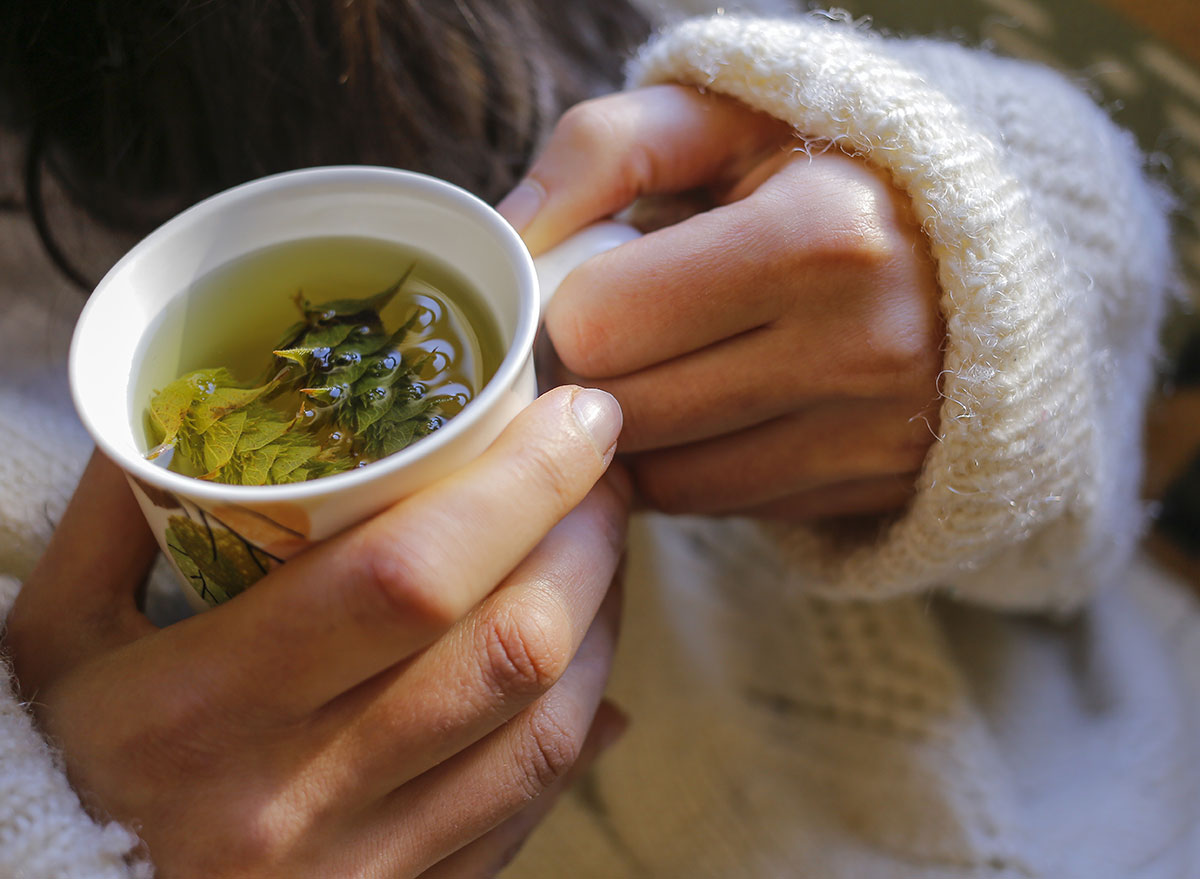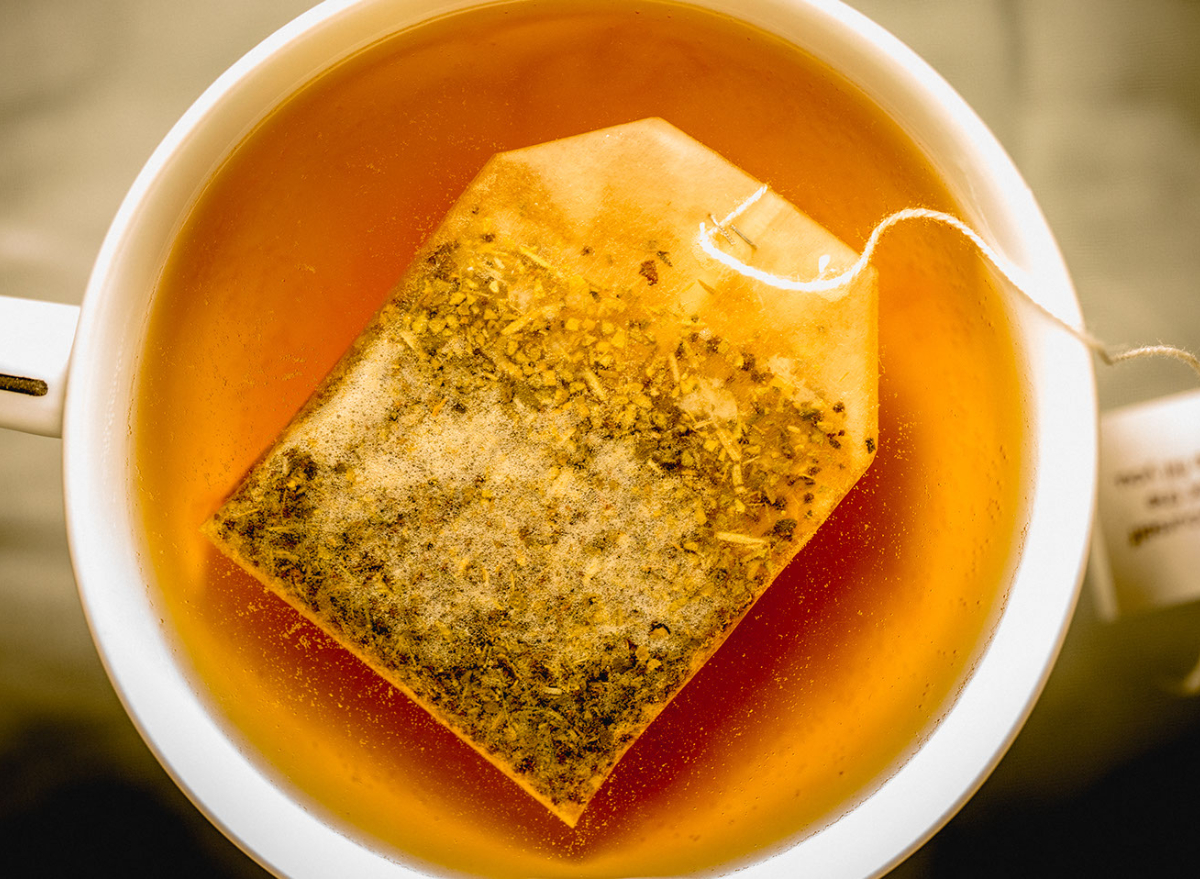The #1 Drink that Reduces Visceral Fat, Says Dietitian

Looks like it's time to spill the tea. Did you know tea has compounds that can boost our metabolism? The caffeine and antioxidants in tea are thought to play a role in increasing our metabolism and contributing to fat loss over time.
Outside of weight loss, tea has a variety of health benefits from reducing blood pressure, assistance in repairing damaged cells, and decreasing heart disease risk.
More research is needed in this area of nutrition, but the initial studies are promising! Here's how pouring yourself a spot of tea can impact visceral fat in your body. Then, be sure to read up on our list of the Everyday Habits That Reduce Visceral Fat.

Not all teas are created equal. Depending on your goals, you might want to choose an herbal tea or a caffeinated variety.
Caffeinated tea can be broken into several categories: green, black, white, and jasmine. Of these varieties, green tea is most researched as a key player in fat loss.
Caffeine in black tea has been shown to increase metabolic rate and may suppress appetite cues when compared to similar caffeinated drink options—contributing to fat loss over time.
But be careful—we do not recommend that you use black tea to purposefully hinder your appetite. Think of this side effect as an added benefit rather than the sole purpose of drinking caffeinated tea.
The best tea for fat loss
If you had to choose one particular tea to stick with that can help reduce the fat in your body, green tea seems to be the answer.
Green tea in particular is rich in EGCG, an antioxidant that is largely studied for its role in boosting metabolism. One study found that four cups of green tea influenced weight and improved blood pressure levels in people with diabetes. Double win!
Is green tea not your thing? A 14-year study found that people who consumed a diet high in antioxidants— including catechins and flavonoids found in tea— had a lower BMI at the end of the study.
This research further confirms that lifestyle changes (the long-term habits we keep the day in and day out) influence our health more than short-term fixes.
Choosing foods and drinks that are high in antioxidants can be great for our health, and may have the added benefit of a lower BMI over time.
Herbal teas are low in calories and can serve as a satisfying replacement for snacking at night. If you find yourself needing something sweet and soothing at night, an herbal tea might be the perfect fit for you.
Consider substituting your nightcap or your night snack for herbal tea. Some of our favorite varieties include lavender chamomile, soothing peppermint, or lemon ginger. Herbal teas are caffeine-free and won't keep you up at night!
Looking for more? We recapped 22 Best Teas You Should Drink for Weight Loss.








